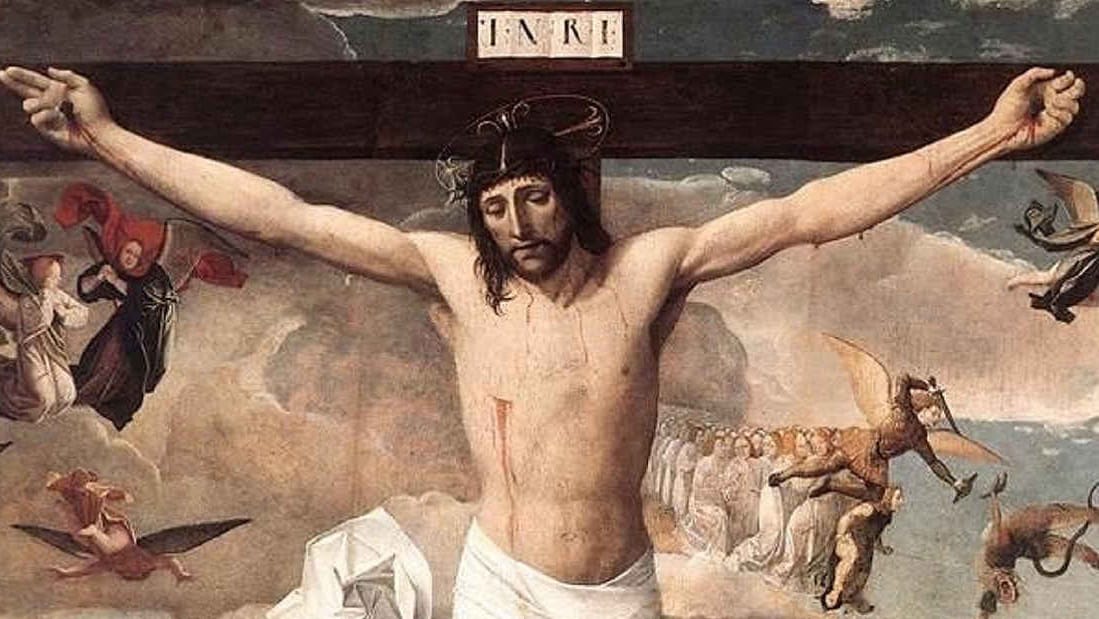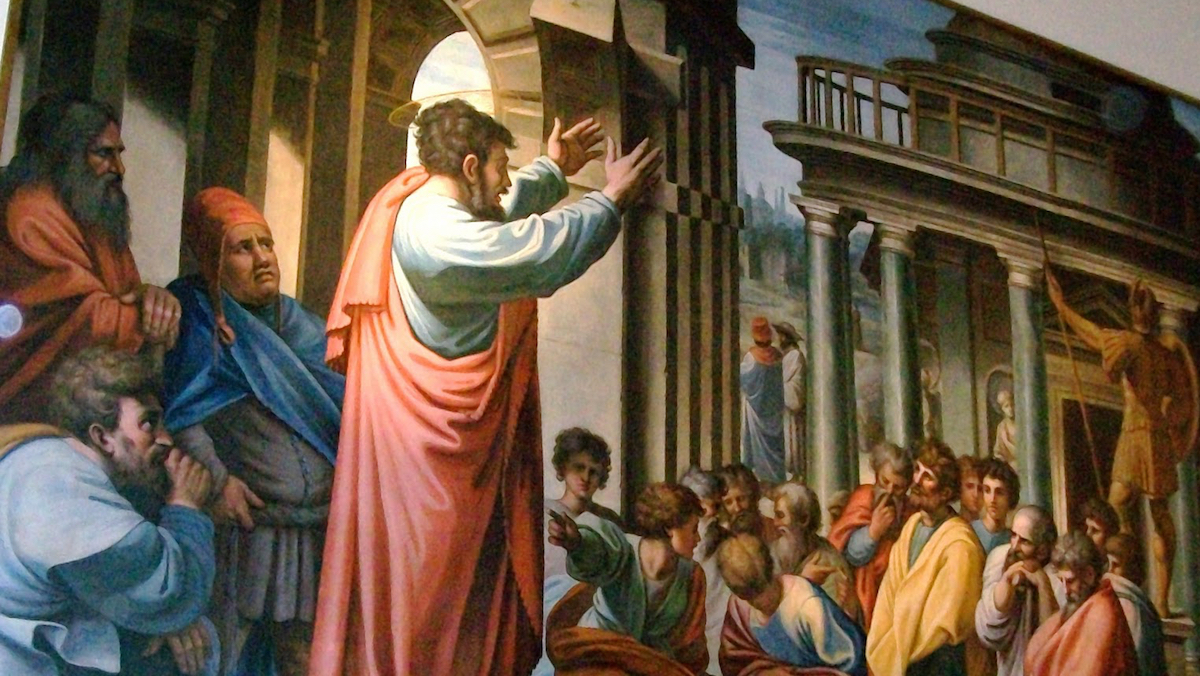A man I know once told me the story of a time in his life when his once-thriving business began to decline. As more companies moved into his small town, competition increased, and his sales began to suffer. Not surprisingly, this caused him to make serious reductions in everything: his place of business, number of employees, and yes, his own income. As these trying and uncertain times unfolded upon him, however, he told me that while he worried, he never despaired. Rather, he leaned deeply upon his Catholic faith. When he was able, he began to attend daily Mass and made the decision to pray more often.
Through it all, despite the many difficulties thrust upon him, he nevertheless felt a sense of peace; that God was with him, that everything would be okay. And eventually, it was. Although his business was smaller, it became more manageable and allowed him greater freedom and time to nurture other areas of his life, especially his faith, family, and friends.
I mention this story because this same man once reminded me when I was in my late teens, that: “Life is hard and none of us escapes this world without bearing some suffering and pain.” At the time, I heard his words, but, these many years later, I have come to understand the truth of his words in my own family and through my diaconal ministry; namely, that suffering and dysfunction and hurt are part of our fallen world.
I’ve also remembered the words spoken by a parish priest that have stuck with me through the years, that “God is good, all the time, and that He walks with us—through it all!”
It seems that some of us are better at recognizing this wisdom than others, especially when we are in the proverbial “thick of it all.” For example, my maternal grandmother, when my mother was just a month old, suffered the loss of her husband, his parents, and an aunt in a tragic car accident that was reported in the major newspapers. After a funeral which saw four caskets in the parlor of her home, she was forced to re-create a life for my mother and uncle. Eventually, she fell in love, remarried, and had many more children!
Throughout her life, we remained close. And, whenever I traveled down rough-and-rocky roads, she would always call and remind me that “God is good, that He is walking with you, and that there is a blessing in there— if you can see it.”
One of the parishioners at the parish I serve possessed a similar wisdom. Despite her own hardships, she would always turn the conversation to the other person and say: “Don’t worry, deary, I’m fine. How are you doing?” She was yet another saint among us who recognized that God is good, all the time, and that He walks with us seeking to make straight the pathways of our lives that sometimes become so curved.
Now if you remember the opening prayer at the beginning of Mass for this 18th Sunday in Ordinary Time, the desire of God to be near us is crystal clear:
Draw near to your servants, O Lord, and answer their prayers with unceasing kindness, that for those who glory in you as their Creator and guide, you may restore what you have created and keep safe what you have restored.
The scriptures provided us focus on this magnificent reality that we should never forget:
That, despite the obstacles of our lives, God never abandons us.
That God fully understands that which we are enduring at this very moment.
That, in His time and way, God promises to restore us and make us whole again because He loves us!
These themes run rampant through each of our readings: God answers our prayers; He understands His creation; He desires to keep us safe and restore us. The Prophet Isaiah (55:1-3) reminds us that if we are hungry or thirsty, we should never be afraid to approach the Lord; for He is always ready to renew us! The Psalmist (145), too, encourages us toward what should be our daily disposition: “The hand of the Lord feeds us; he answers all our needs.” And St. Paul? In his Letter to the Romans (8:35, 37-39), he lays out a litany of things (e.g., anguish, distress, persecution, famine, nakedness, peril, and death) that to the unbeliever means the end. But not for those who believe in Him! For nothing can separate us from the love of God in Christ Jesus!
All of this brings us to our Gospel passage from Matthew (14:13-21), which is surrounded by two major events: the death and martyrdom of John the Baptist (where the daughter of Herodias is provided with her wish—John’s head—after dancing for Herod) and Jesus (and eventually, Peter) walking on the water.
In today’s Gospel passage, we are told that when hearing of the death of his cousin (John the Baptist), Jesus entered a boat and withdrew to a deserted place by himself—to pray and immerse himself in the will of the Father. And then, of course, we are thrust into the Miracle of the Loaves and the Fish, which many of us are familiar with. Immediately following this miracle, Matthew tells us that “…they ate and were satisfied.” For, it was “enough” for them.
Caryll Houselander, a British author in the mid-20th century once pondered and wrote about this passage:
It is estimated that in every second of the day and night four elevations of the Host take place. I never seek to wonder at this, or to rejoice in the knowledge that there is never a second of one’s life in which one cannot lift up one’s heart to God in the heart of Christ lifted up in the Host.
Let us think about this. At the elevation of the Host, God keeps His promise to be ever near us—and feeds us with His very body and blood. And in receiving Him in the Most Holy Eucharist, we are nurtured and changed and loved in ways we cannot imagine this side of heaven.
This week, may we think about our own lives and relationship with God. After thanking Him for everything, it is okay to also lay the burden of our lives upon His broad shoulders; He knows full well our challenges and disappointments. But, may we also rest in His love. May we know that we are loved by the Creator of the world!








